The resurgence of Kannada parallel cinema
Utsav Gonwar, who shot his maiden film under dire circumstances, is happy that he never compromised on the script. “We were down to our last penny while making Photo, but I had freedom as funding your own films will avoid pressure or interference from the producer,” says the Kannada filmmaker. Utsav’s Photo is a haunting account of the impact of the Coronavirus outbreak on the not-so-privileged. The film received a standing ovation at the recently-concluded Habitat International Film Festival in New Delhi.
A movement seems to be on the rise in the Kannada parallel cinema space. A bunch of passionate filmmakers, who have grown up watching masters of world cinema, are making films based on stories rooted in reality that appeal to cinephiles.
T Pattabhirama Reddy’s Samskara spurred the start of a revolutionary phase in Kannada cinema. The likes of Girish Karnad ( Vamsha Vriksha and Kaadu), TS Ranga ( Geejagana Goodu) , P Lankesh ( Pallavi), BV Karanth ( Chomana Dudi), TS Nagabharana ( Grahana), Chandrashekhara Kambara ( Kaadu Kudure), and Baraguru Ramachandrappa ( Ondu Oorina Katha) made hard-hitting, progressive films in the 1970s. Perhaps the most significant filmmaker from this period is Girish Kasaravalli. After debuting with Ghatashraddha, Kasaravalli had a sustained presence on the international circuit with his pioneering works ( Tabarana Kathe, Thaayi Saheba, and Dweepa).
Today, the advent of technology and easy access to films across the world has helped youngsters follow their dream of making films. Call it an ode to the trailblazers of the bygone era, it would not be an overstatement that these filmmakers have put Kannada cinema on the global stage in the last two years.
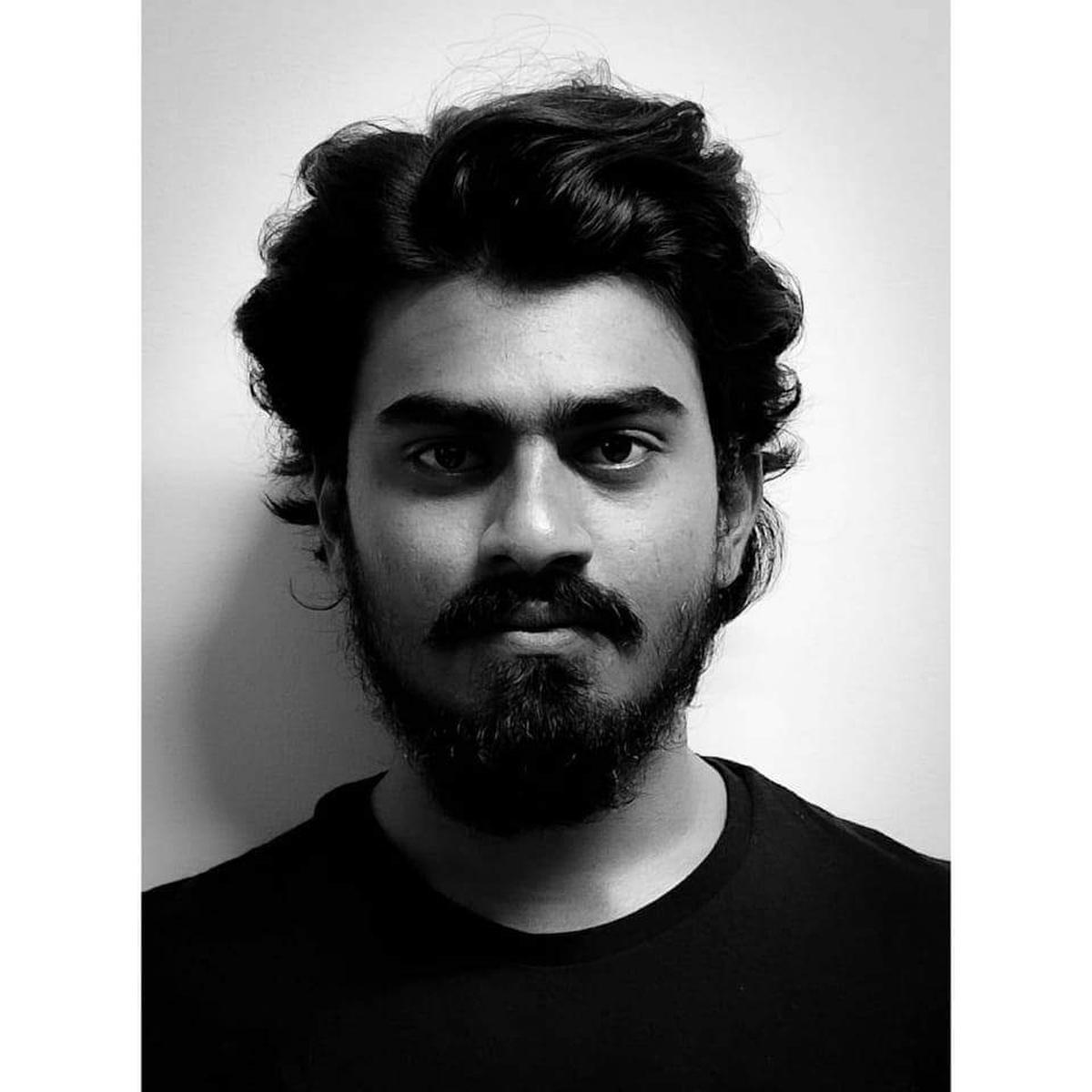
Utsav Gonwar
| Photo Credit:
Special Arrangement
The films of Marathi director Nagaraj Manjule ( Fandry, Sairat) have left Utsav questioning certain aspects of society. He does not miss a chance to praise the evergreen relevance of Vittorio De Sica’s Italian classic Bicycle Thieves. Utsav’s Photo makes you question the system. It is adocument of one of the darkest periods of our times.
The film depicts the migrant exodus during the COVID-19 lockdown. Durgya (Veeresh Gonwar), from Raichuru, has a dream of clicking a photo of himself standing in front of the Vidhana Soudha in Bengaluru. His father (Mahadev Hadapad) works as a daily-wage labourer in the city. When his school declares a 15-day break due to the pandemic, Durgya’s mother sends him to the big city to join his father. The duo, however, is forced to walk back to their hometown when the Government announces a sudden lockdown.
“In Raichuru or the entire Kalyana-Karnataka region, it’s a matter of pride to have a photo of yourself clicked in front of the Vidhana Soudha. As a child, I dreamt of it too. As the fortress of power that shapes the lives of common people, Vidhana Soudha is a metaphor in the film, but it’s also a reference from my childhood experiences,” explains Utsav.
We see the two faces of the privileged class as the father-son duo sets off on a long and painful journey. Utsav aptly projects the contrasting worlds of the rich and the poor. “I haven’t been entirely judgmental of affluent people or those with power because there are all kinds of people in this world,” he says. But he has no qualms in indicating that his film is a strong statement on the “mismanagement of the system in the wake of a pandemic”. “The film’s core theme is one-sided. This is a political film,” he says.
The minimalistic drama and impressive sync sound are the highlights of Photo, which turns into a road movie in the second half. “We worked hard on sync sound and its post design. We blocked the roads for two kilometres in several places to achieve the perfect output,” he says.
Having assisted mainstream Kannada filmmakers for seven years, Utsav beat financial hurdles to complete the film. He was unaware of how to show his film to people till the Bengaluru International Film Festival (BIFFes) came as the right platform for its screening early this year. Recently, a special screening of Photo in the city was house full, with celebrities such as Sruthi Hariharan and Raghu Dixit promising to offer financial support to the filmmaker.
Ram Reddy’s Thithi (2016) , a comedy village drama anchored by non-actors, successfully brought the mass audience to an avant-garde film in the last decade. India lacks infrastructure to release parallel films for the lay audience, opines Natesh Hegde, whose Pedro, backed by actor-director Rishab Shetty, is a strong take on intolerance.
ALSO READ: A Thithi with destiny
Premiered at the Busan International Film Festival in 2021 and a winner at Pingyao International Festival in Shanxi, China, Pedro is set in Natesh’s village in the Western Ghats. It is about an outcast (Gopal Hegde) whose one blunder makes him a villain in the eyes of the people. Pedro’s long shots indicate Natesh’s visual style. Yet the film is evocative, as Natesh consciously ensures we try to imagine the outcome of several suggestive scenes on power equations and patriarchy.
Gopal Hegde in ‘Pedro’
| Photo Credit:
Special Arrangement
The likes of French auteur Jean-Luc Godard, Abbas Kiarostami, and Riwik Ghatak gave Natesh the courage to plunge into cinema. “They showed me it’s possible to make a film even if you aren’t a film student,” he says. His next Vagachipani (starring Rangayana Raghu , Raj B Shetty, Dileesh Pothan) is a reflection of human greed and is shaping up as a companion piece to Pedro, he says.
“When the OTT platforms arrived, they were interested in off-beat films. That’s why we watched movies such as Miss Lovely and Chauthi Koot on OTT platforms. It’s important to have conversations on unconventional films,” adds Natesh.
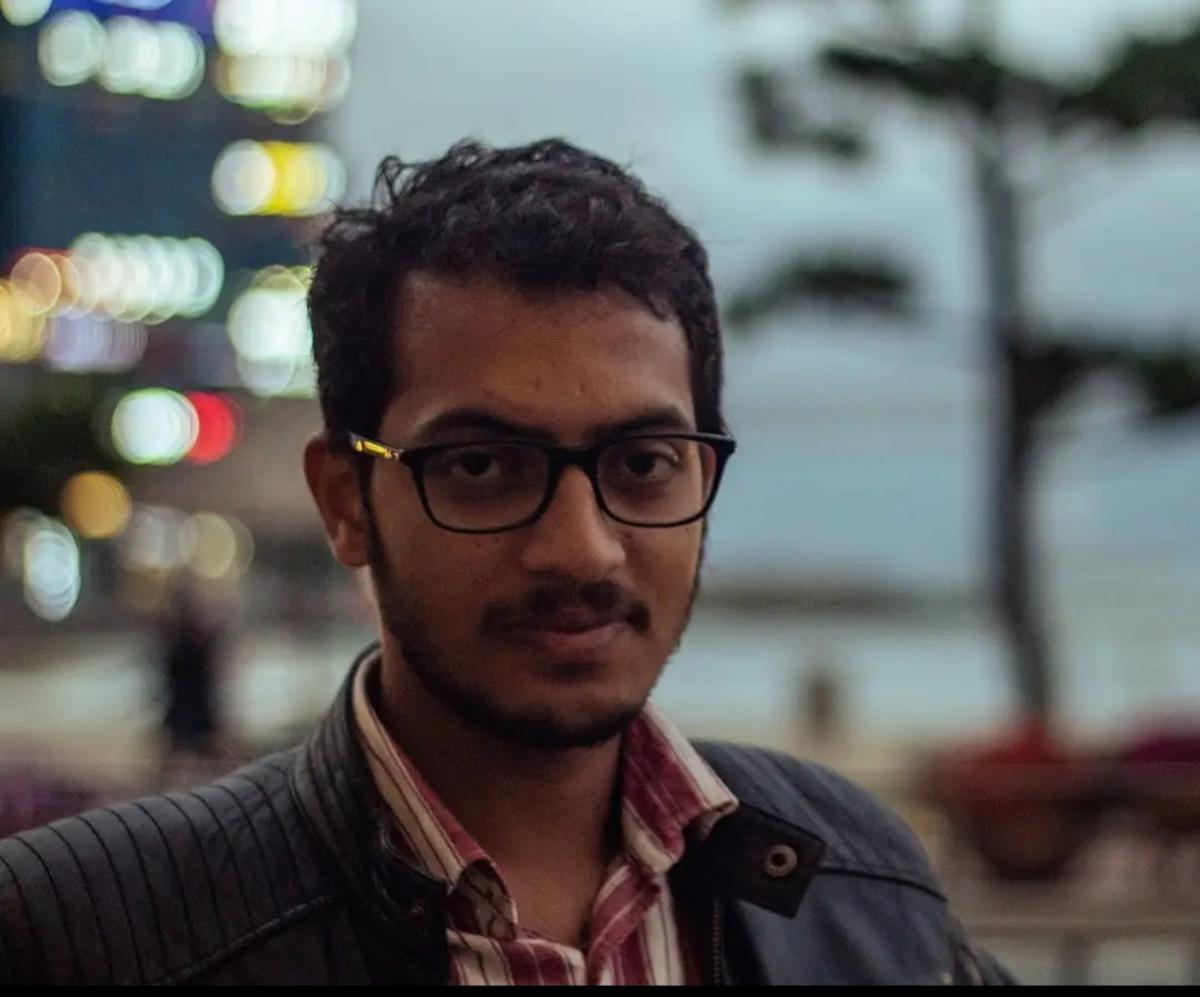
Natesh Hegde
| Photo Credit:
Special Arrangement
Prithvi Konanur echoes Natesh’s observations. “OTT platforms have taken the Kannada audience for granted. They are deciding what the audience wants, while it should be the other way around,” he says. Prithvi’s Hadinelentu (Seventeeners) premiered at the Busan International Film Festival before being picked as the opening film at the International Film Festival of India in Goa.
In the film, all hell breaks loose when a sex video of a teenage couple — a Brahmin boy (Neeraj Mathew) and a Dalit girl (Sherlyn) — gets leaked. The film takes a serious look at caste discrimination and gender bias.
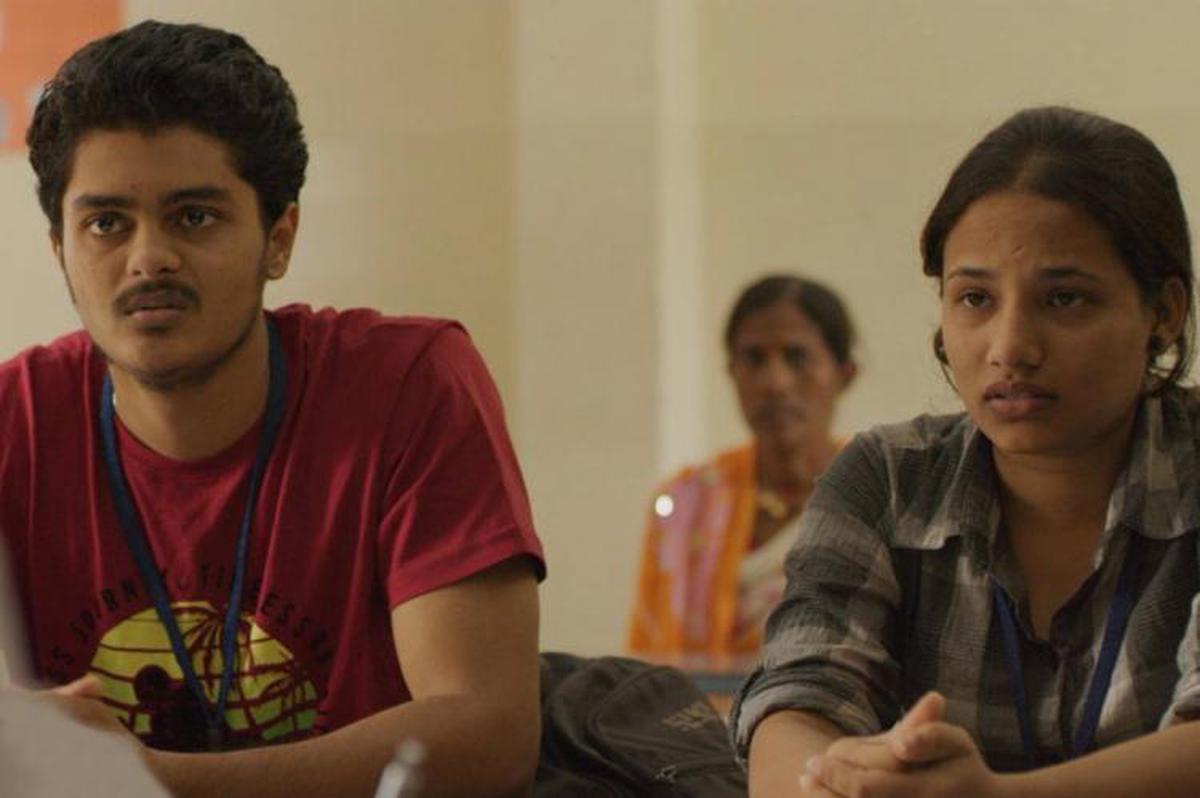
Neeraj Mathew and Sherlyn in ‘Hadinelentu’
| Photo Credit:
Special Arrangement
Hadinelentu reminds you of Prithvi’s previous film Pinki Elli, a festival hit. In that film, set in Bengaluru, a mother returns home to see her baby daughter and caretaker missing. Hadinelentu and Pinki Elli run like thrillers and have characters with grey shades. These films show the complexity of the Indian legal system and holds up a mirror to social inequalities. “The rich and poor divide is our unfortunate reality, and I feel it’s going to be a dangerous problem in the future,” says Prithvi, reflecting on two of his films that made it to the FEPRESCI top 10 list.
ALSO READ:27 films win awards at BIFFes
Champa Shetty is a welcome change in an industry having few female filmmakers. Her debut Ammachi Yemba Nenapu and her recent Koli Esru (chicken curry) are women-centered films with impressive craft. “Women writing women’s roles brings authenticity to the story,” she says
Champa P Shetty
| Photo Credit:
Special Arrangement
Koli Esru, which won the first prize at the Indian cinema competition at the BIFFes, revolves around Huchheri (Akshatha Pandavapura in a terrific performance), who does odd jobs to run her family that comprises a drunkard husband and school-going daughter (Apeksha Choranahalli). One day, her daughter’s desire for chicken curry puts Huchheri in a complicated situation. Based on Ka Ta Chikkanna’s story Huchheri Esarina Prasanga, the film is about the many desires of the poor. “I balanced the theme of hunger with the plight of a woman fighting patriarchal and lustful men,” says Champa.
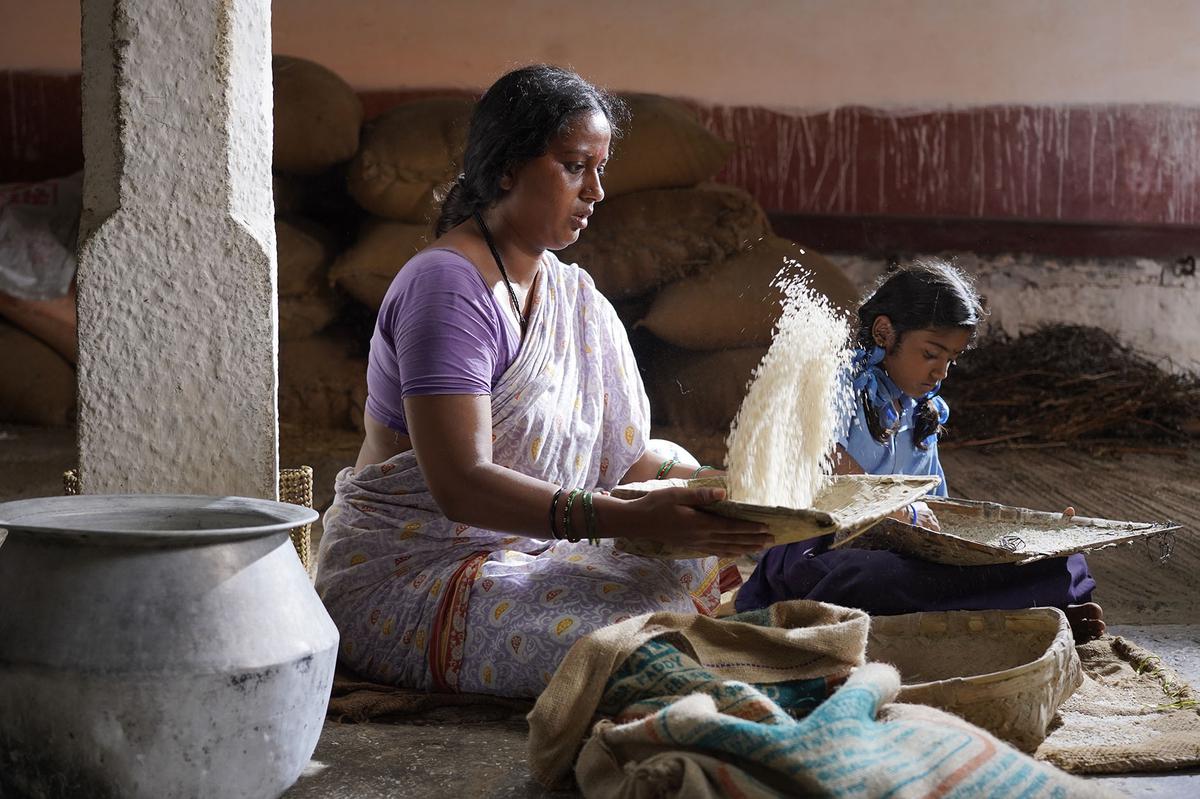
Akshatha Pandavapura and Apeksha Choranahalli in ‘Koli Esru’
| Photo Credit:
Special Arrangement
Set in a village in T Narasipura town near Mysuru, the film is an engrossing drama propelled by terrific performances. The accent of the actors, for instance, sounds authentic. “We called theatre artistes from that town for auditions,” she says of the film set to premiere in the Indo-German Film Week and Ottawa Indian Film Festival. Champa, who rose up the ranks as a dubbing artiste and actor, wants the Kannada film industry to take inspiration from Malayalam cinema in generating revenue from small-scale, content-oriented films.
ALSO READ: Entering new spaces
Jayashankar Aryar, whose Shivamma won the New Current Award at the Busan International Film Festival, says filmmakers must use festivals to network with producers. A software engineer-turned-filmmaker, Jai Shankar is not a movie buff but loves a handful of films from Abbas Kiarostami, Asghar Farhadi and Satyajit Ray.
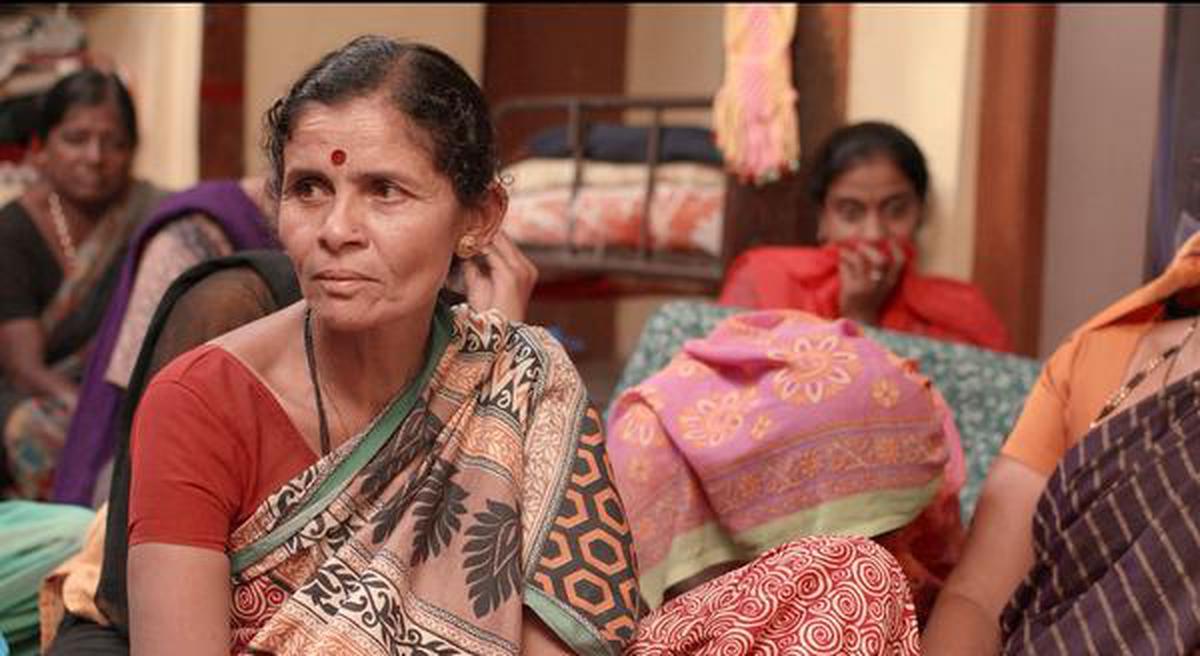
A still from ‘Shivamma’
| Photo Credit:
Special Arrangement
Known for projecting unique stories with non-actors, Jai Shankar’s Shivamma is about a cook at a Government school who gets into a multi-level marketing business to take care of her family. “My stories aren’t technical marvels. My films are driven by emotions. I have completed the synopsis of my second film. Now I will start pitching it to co-producers at top-tier film markets,” says Jai Shankar, a gifted Kannada filmmaker touted to go places.
For all the latest Entertainment News Click Here
For the latest news and updates, follow us on Google News.
